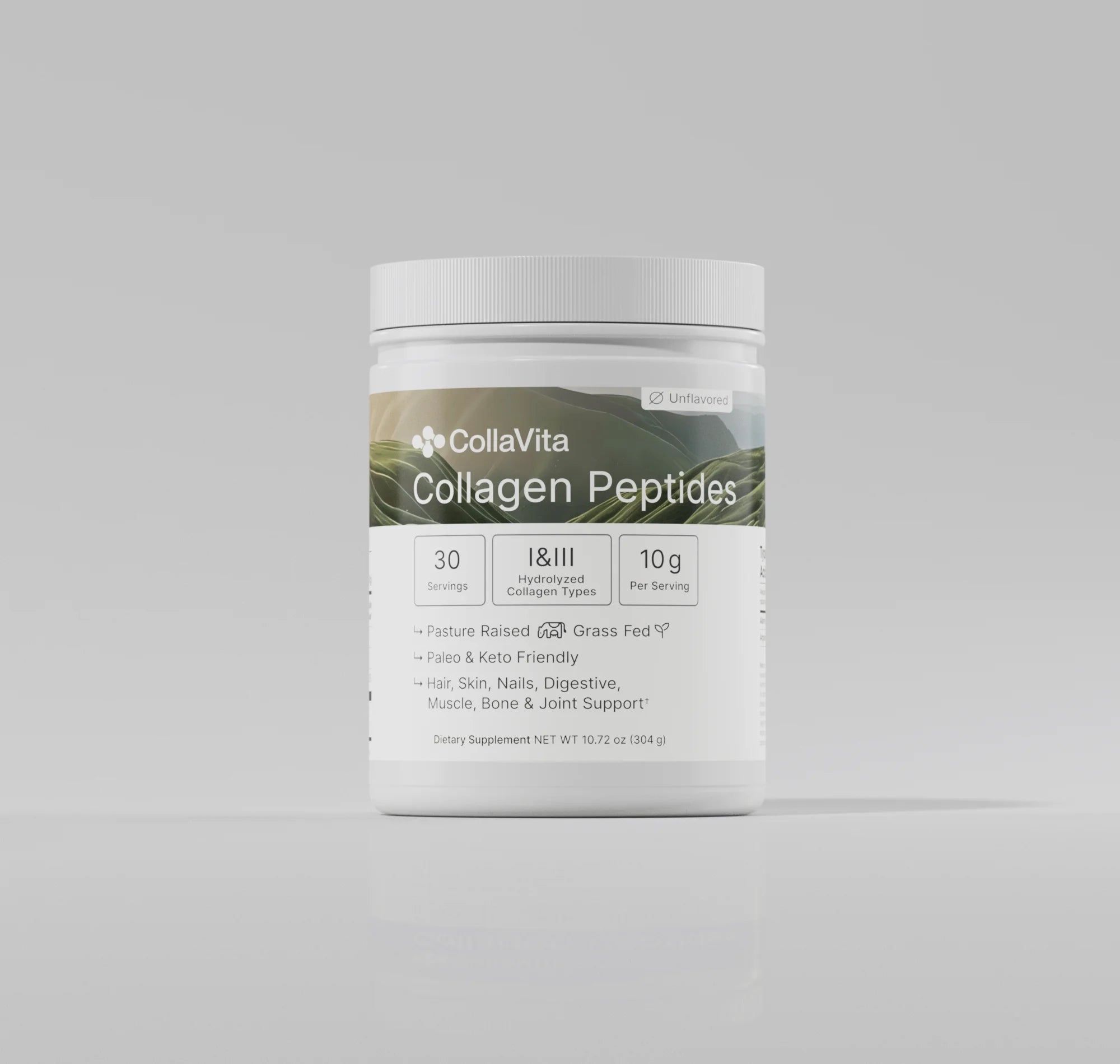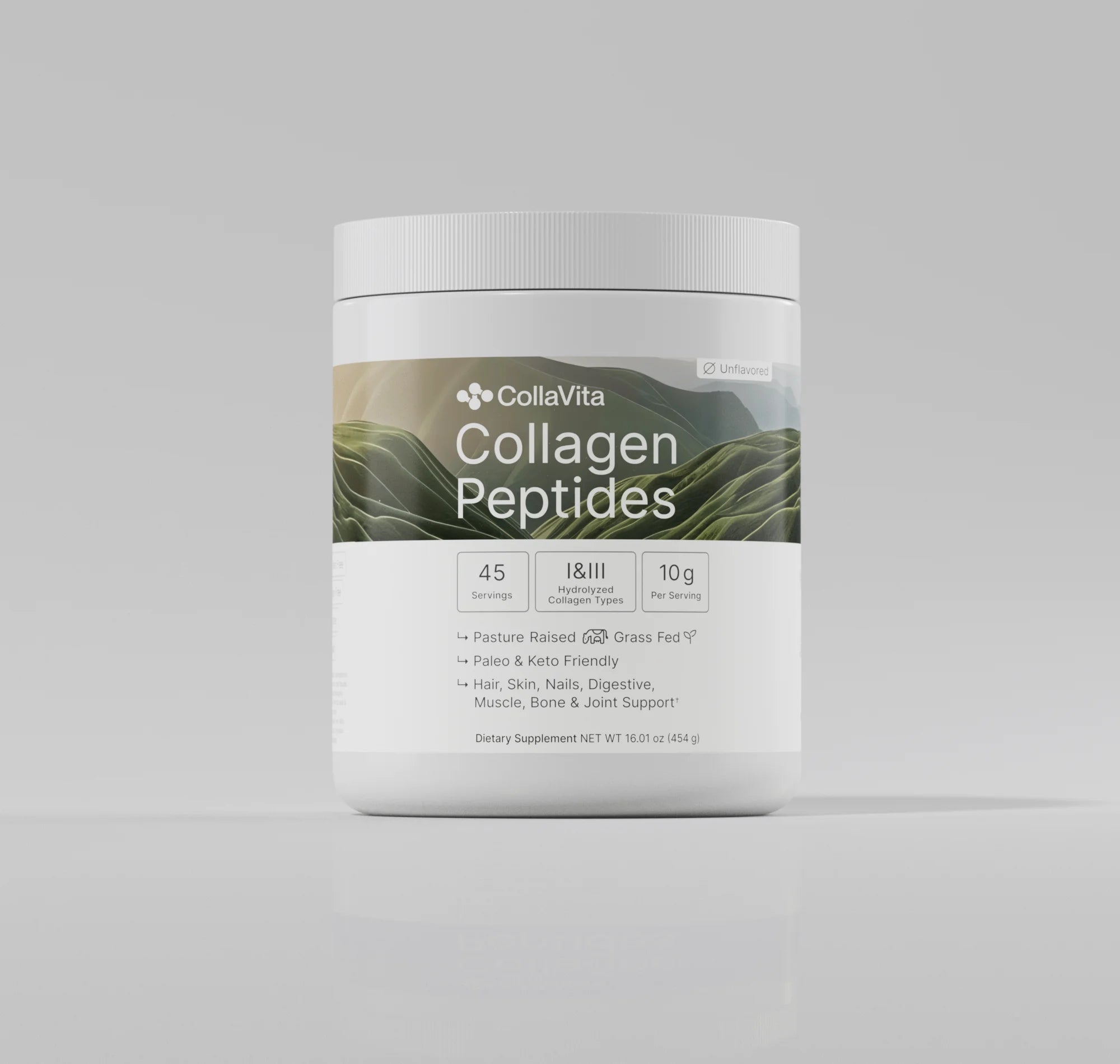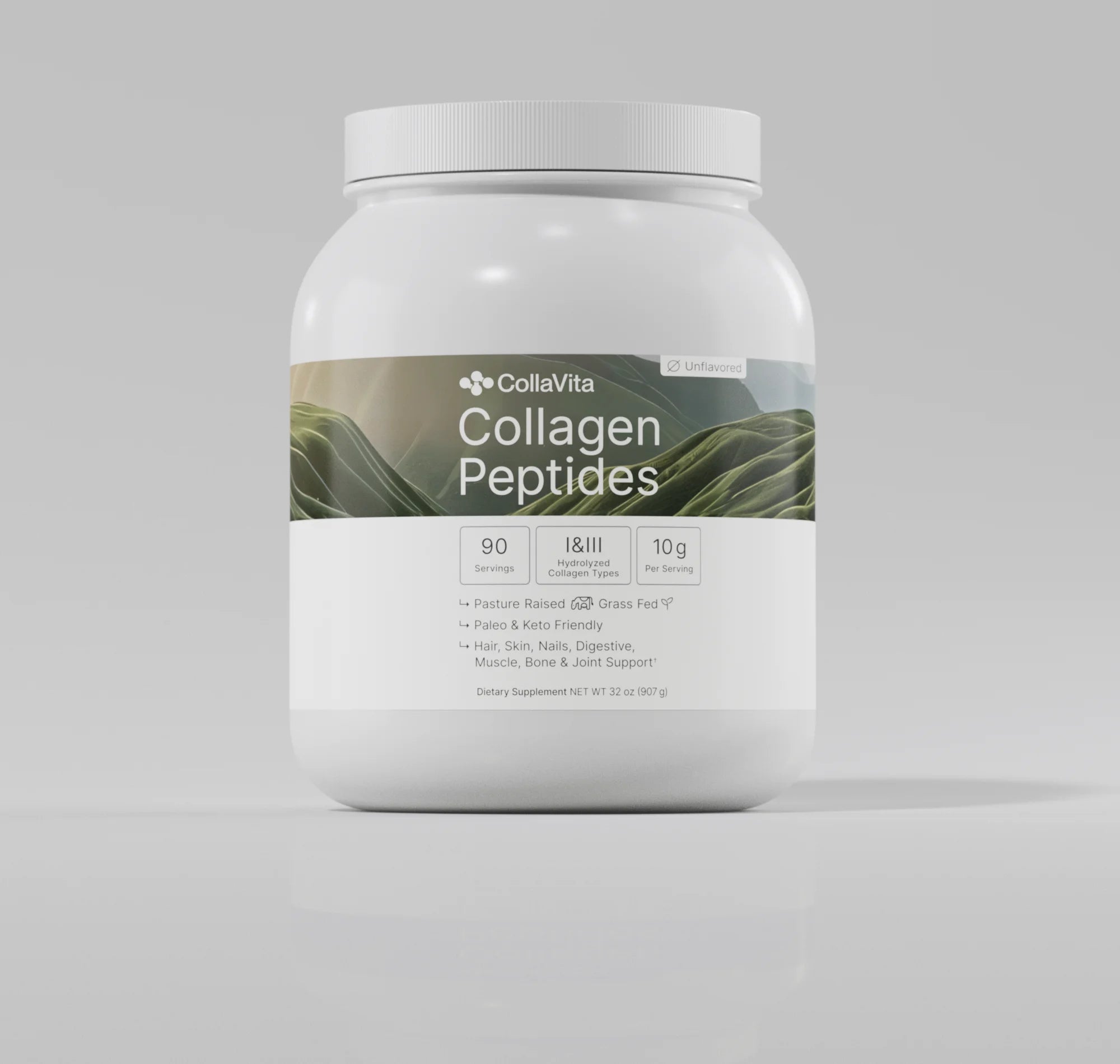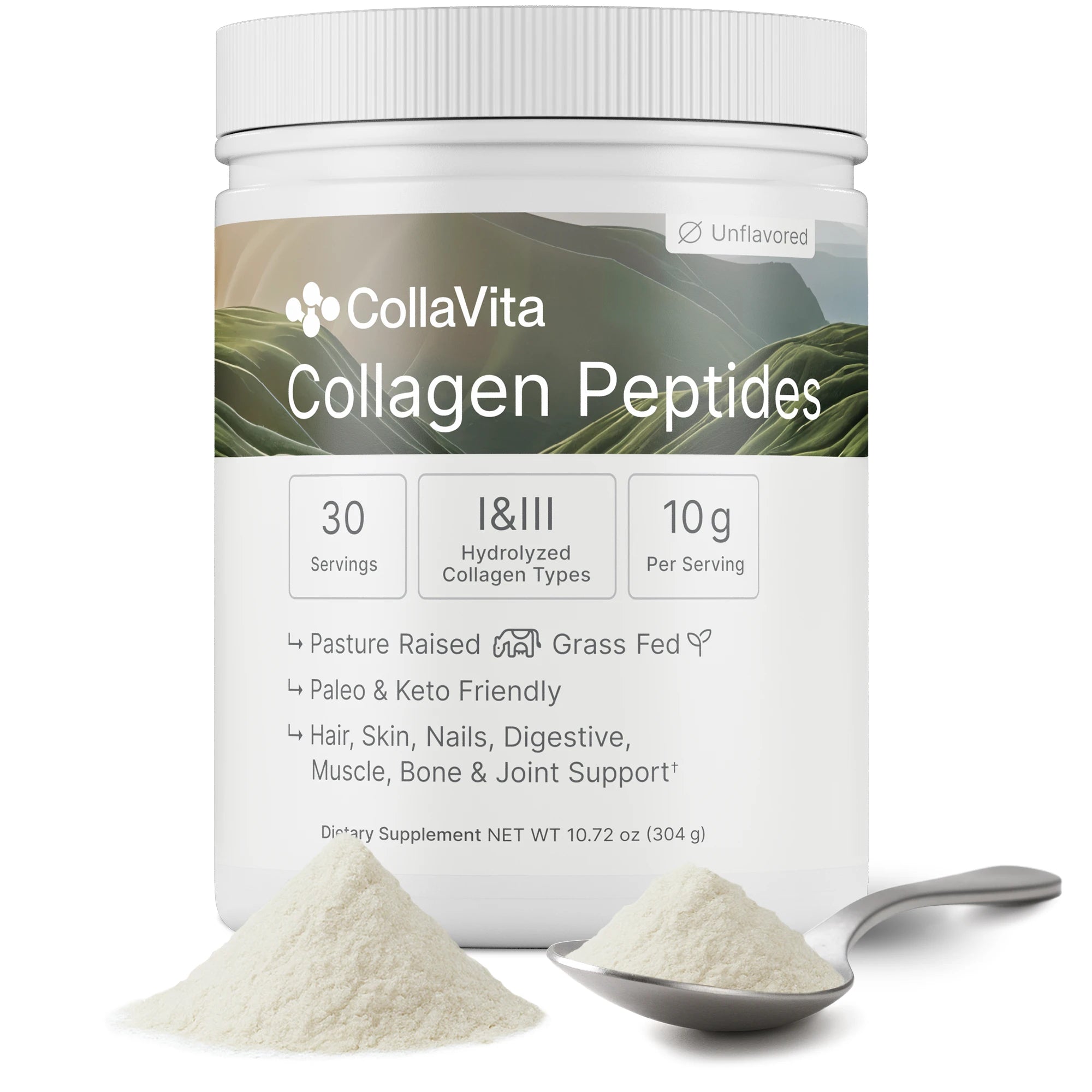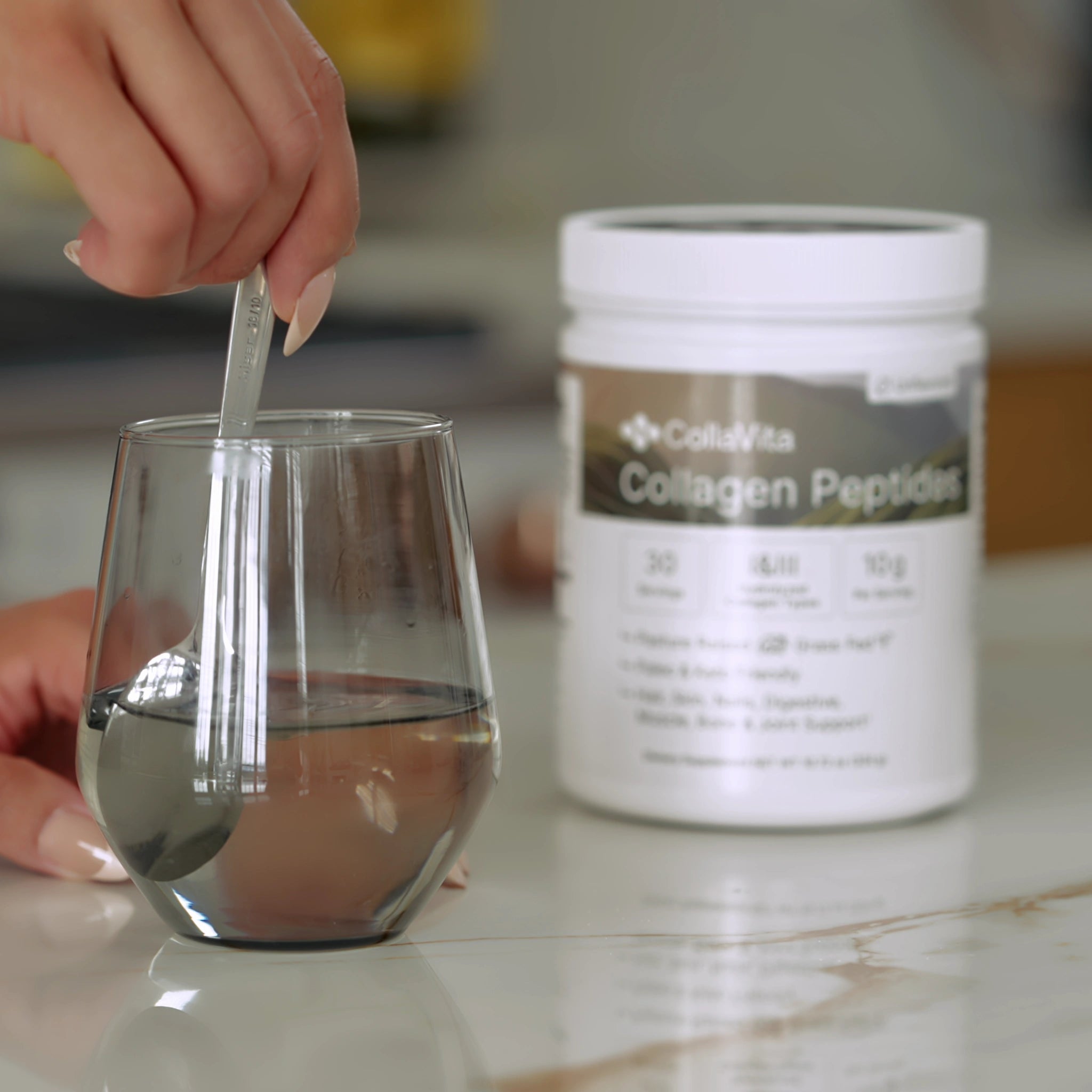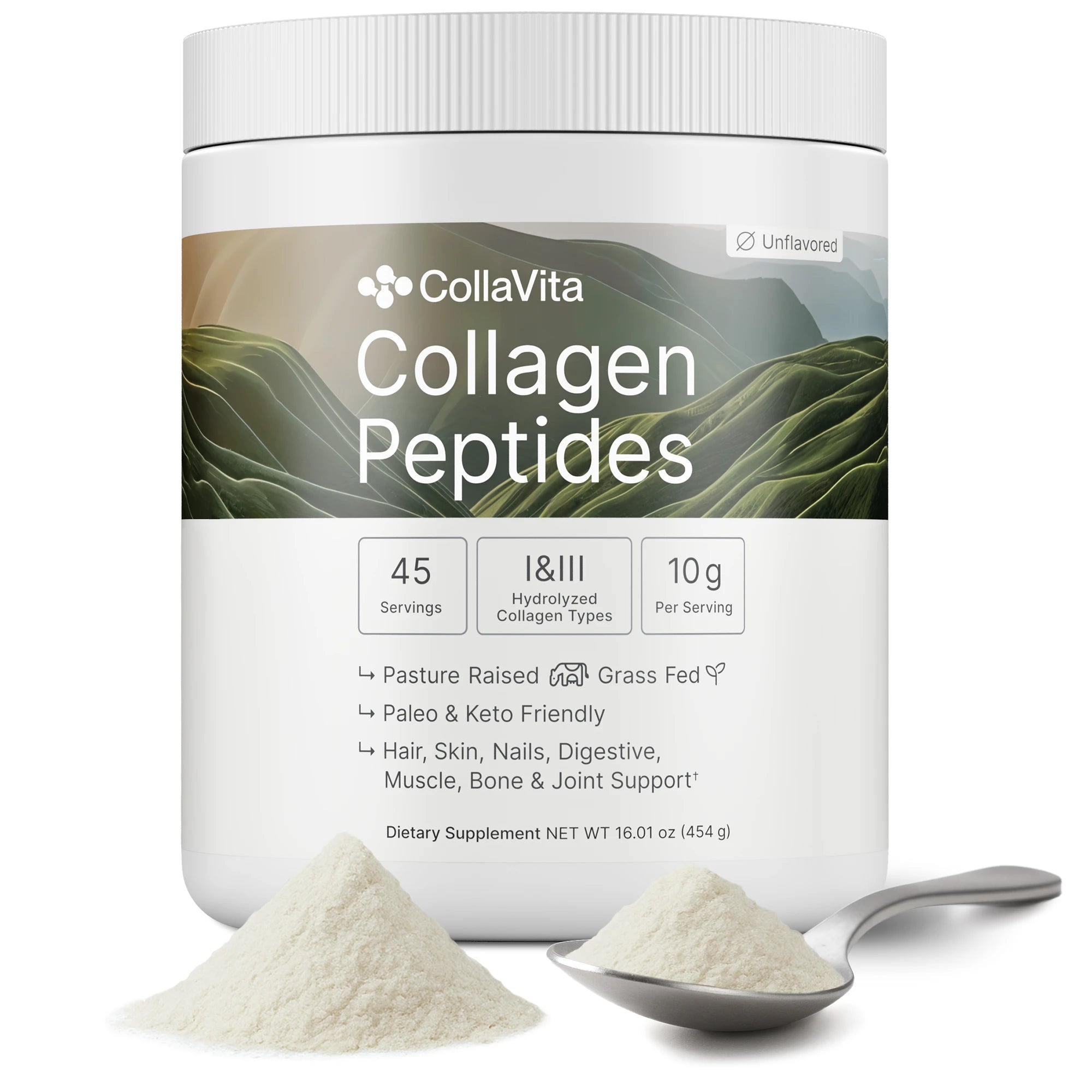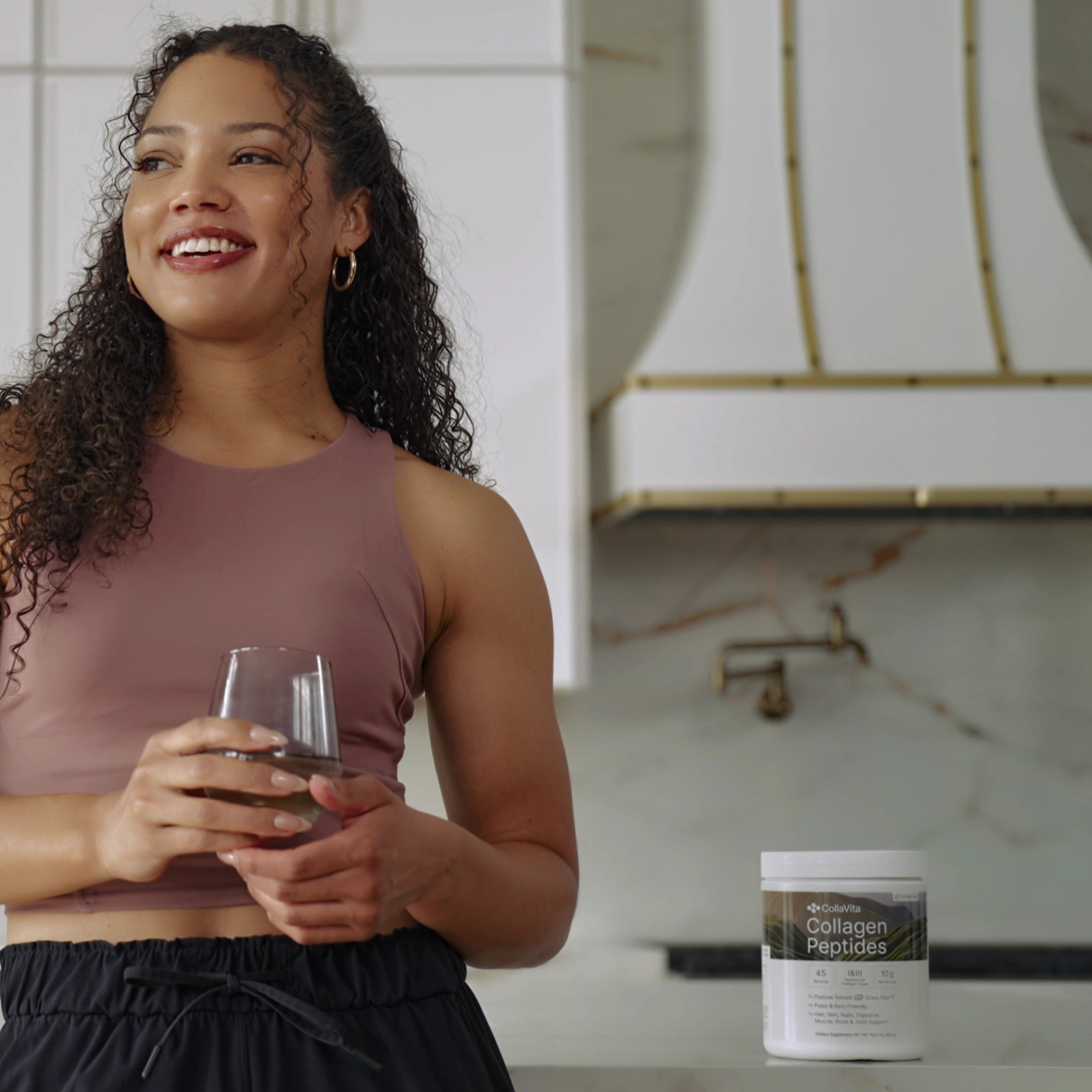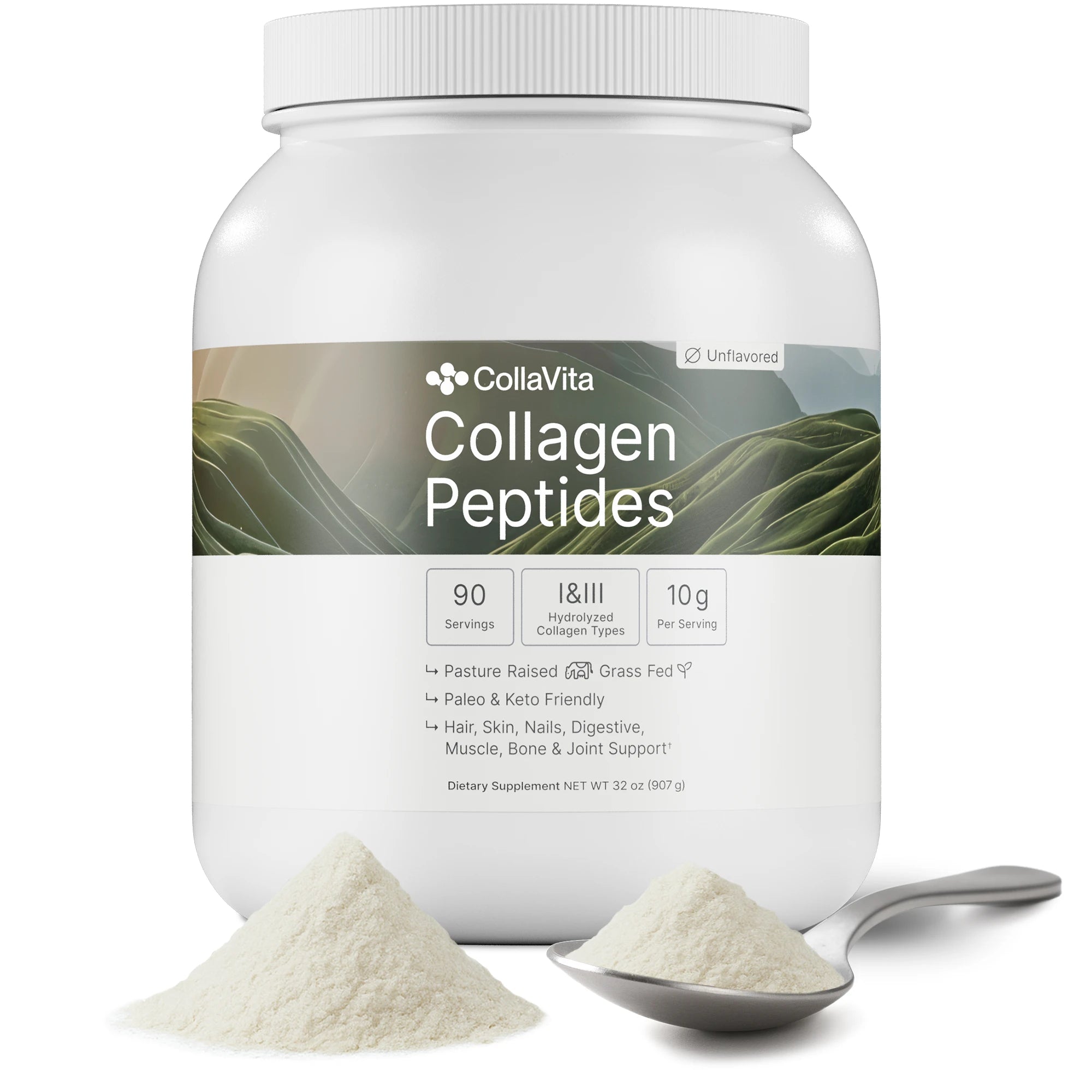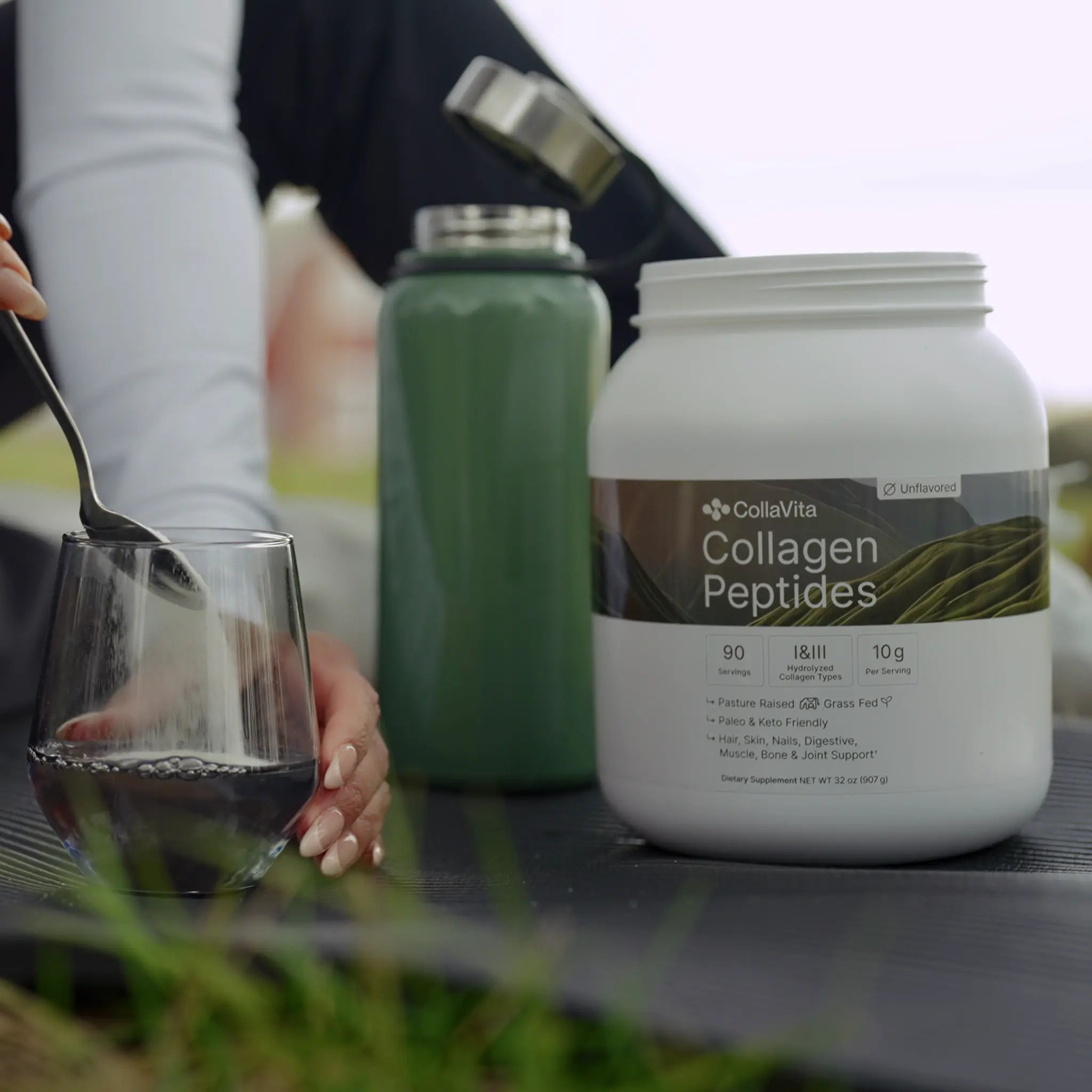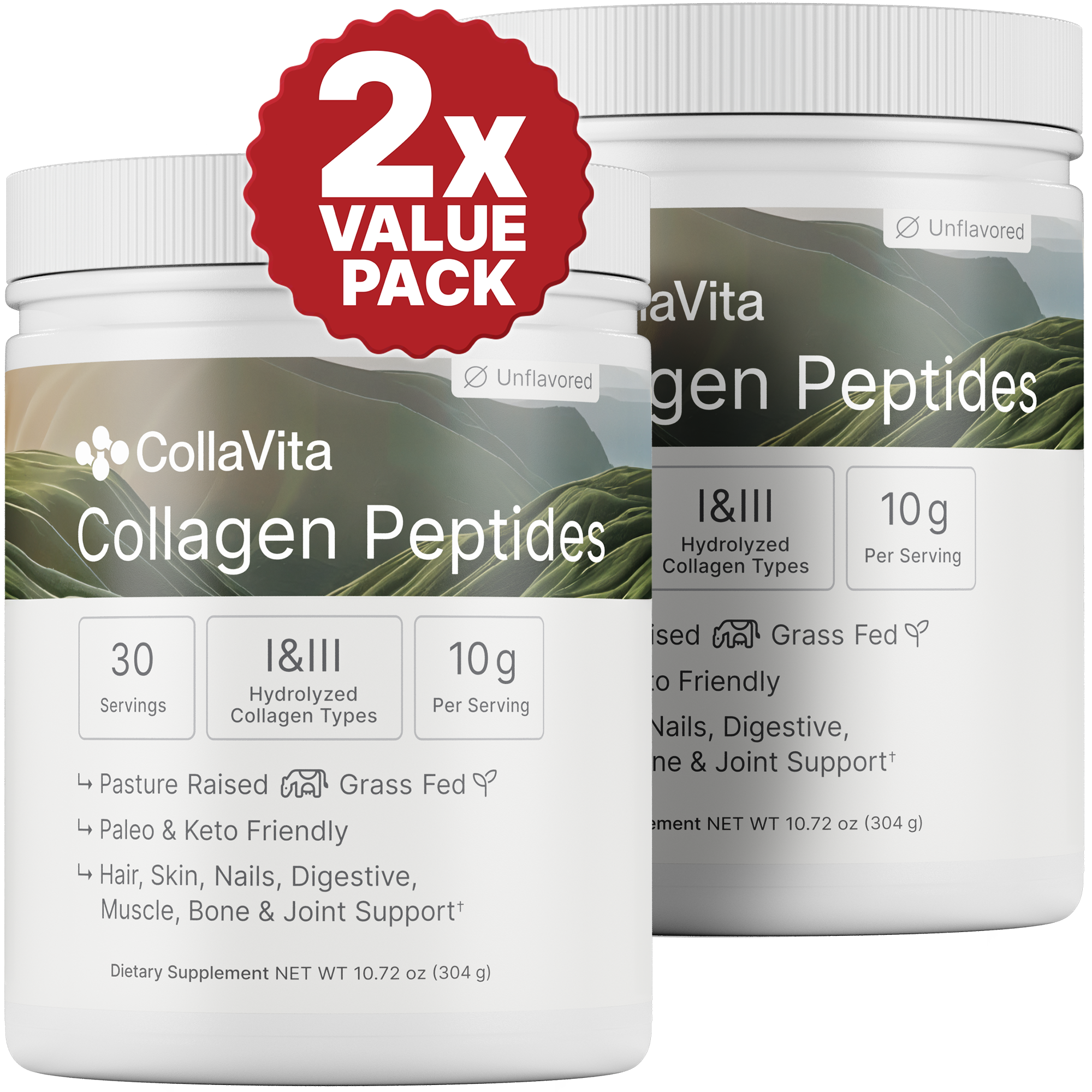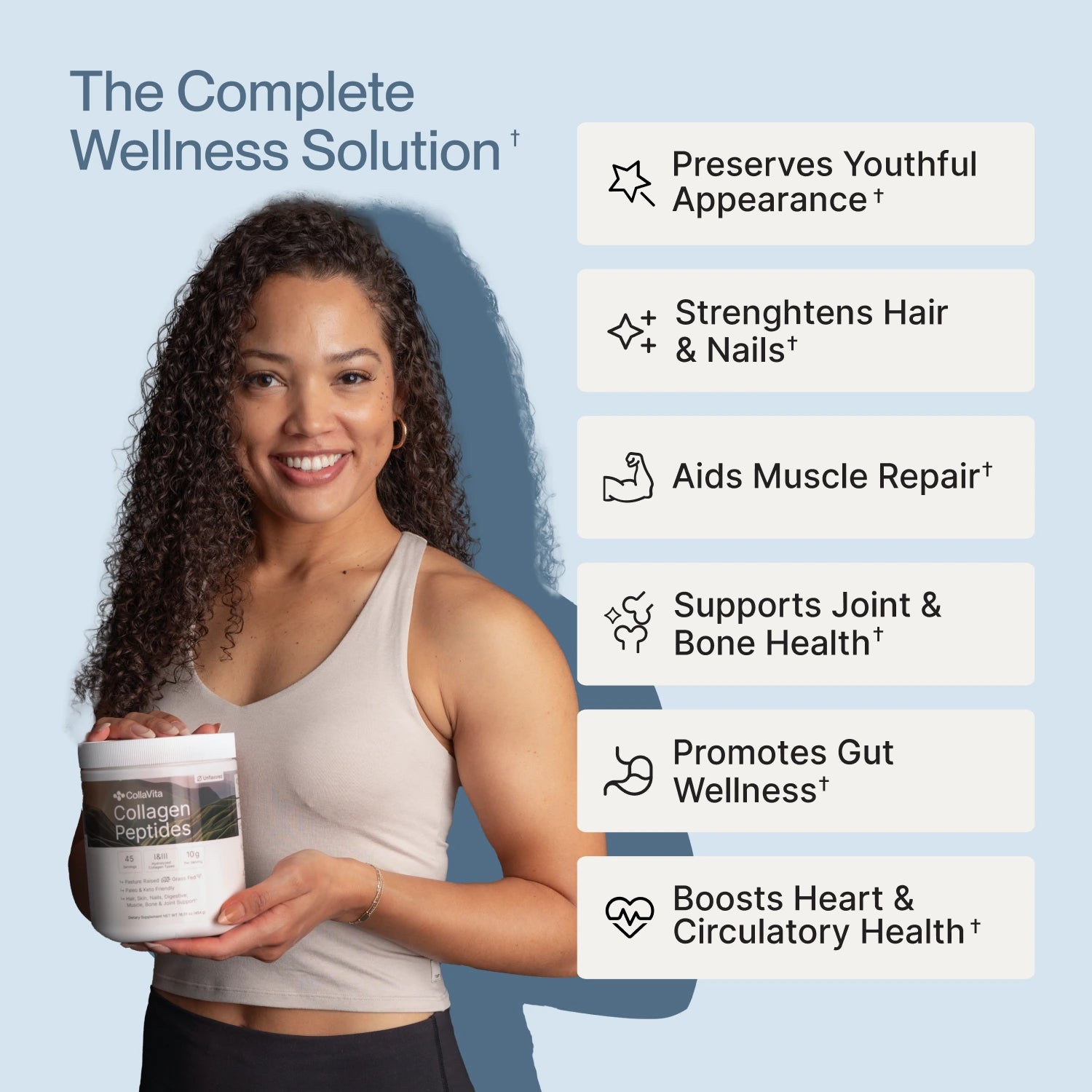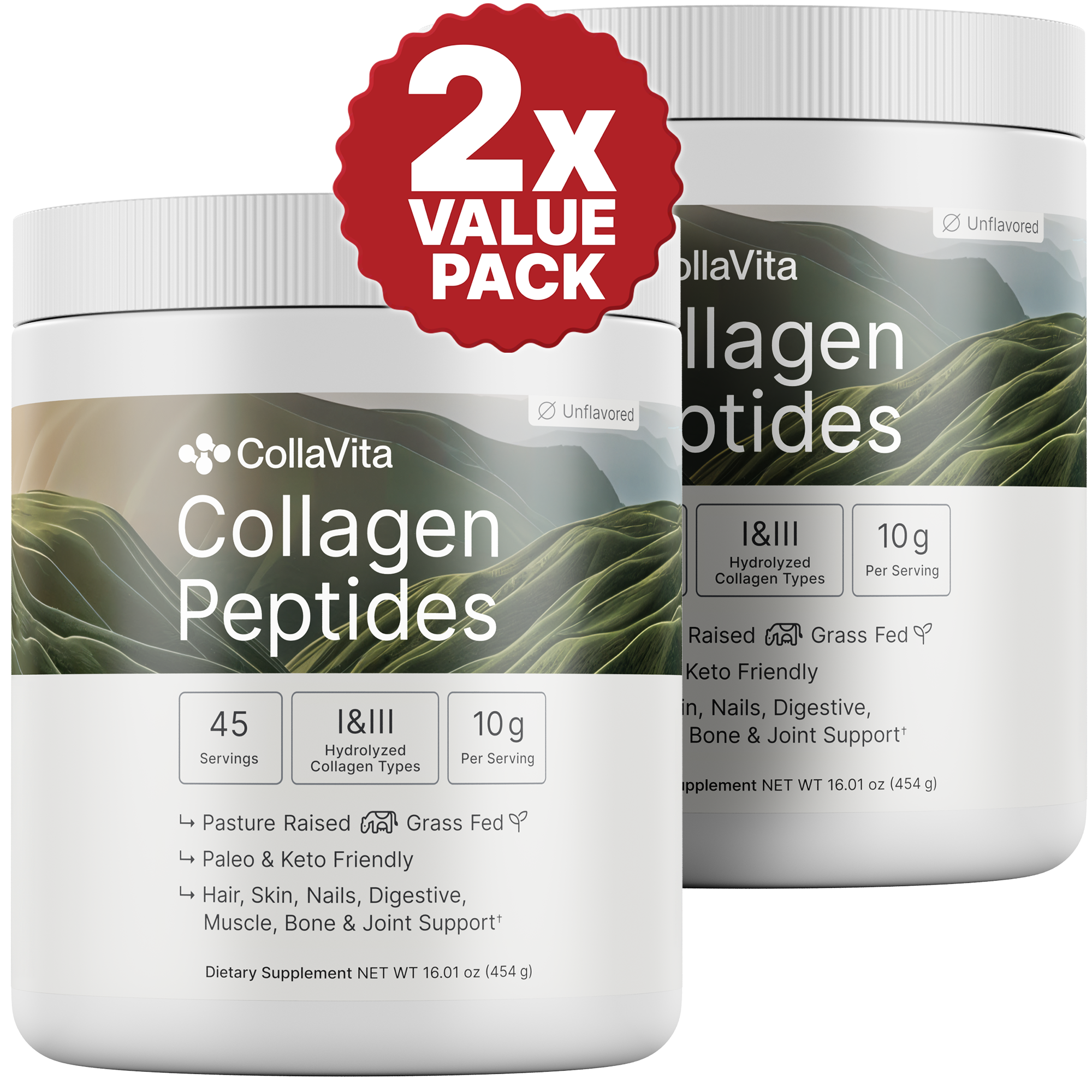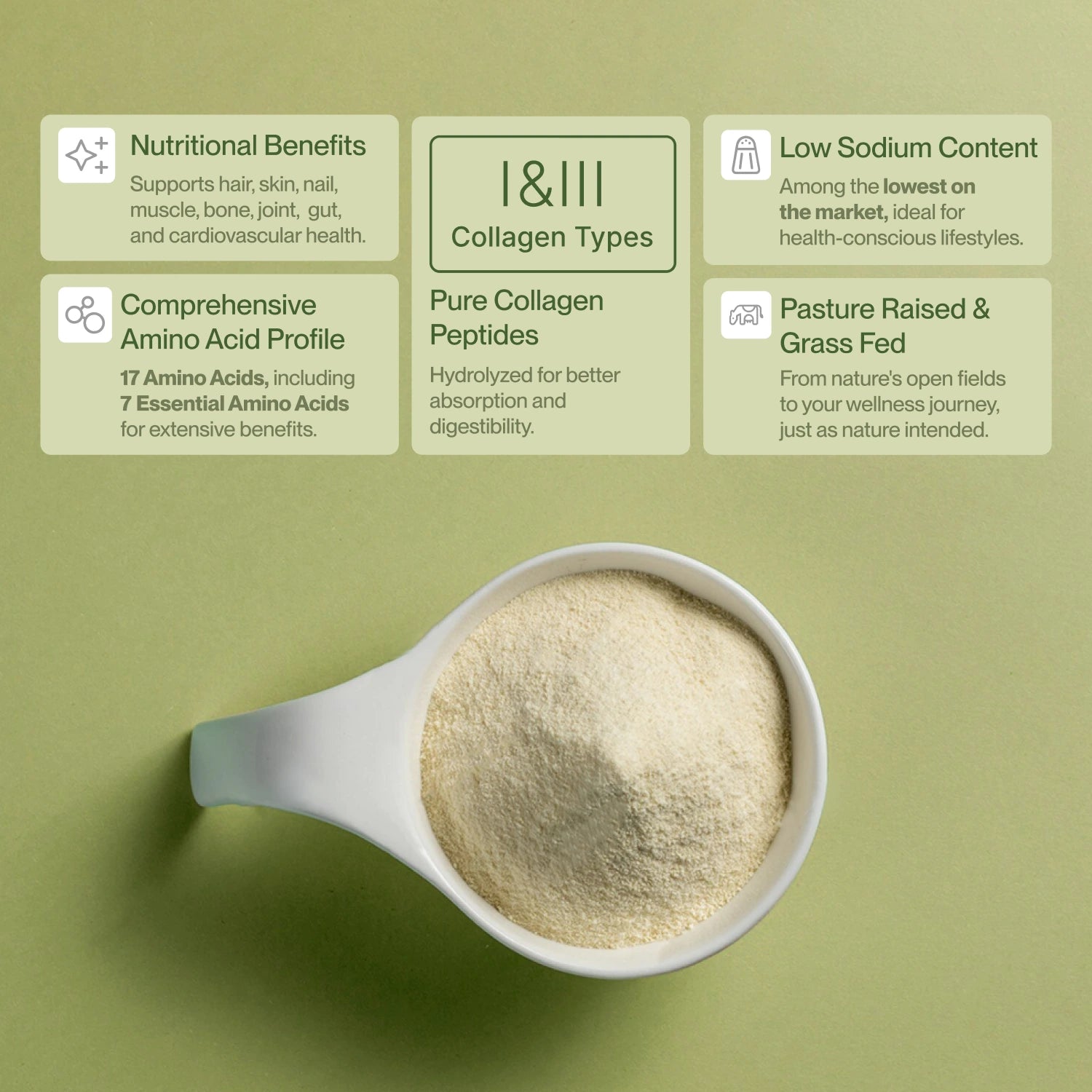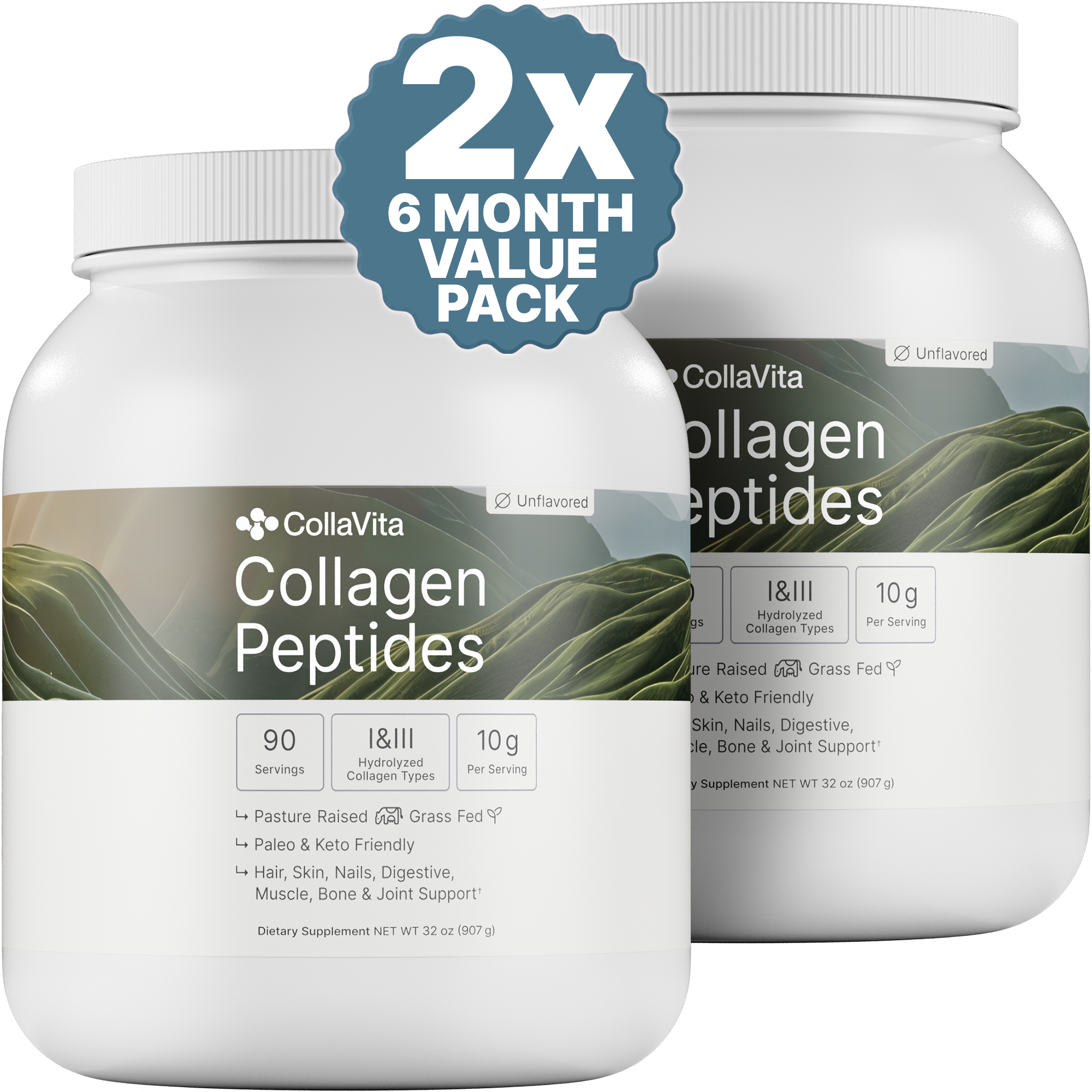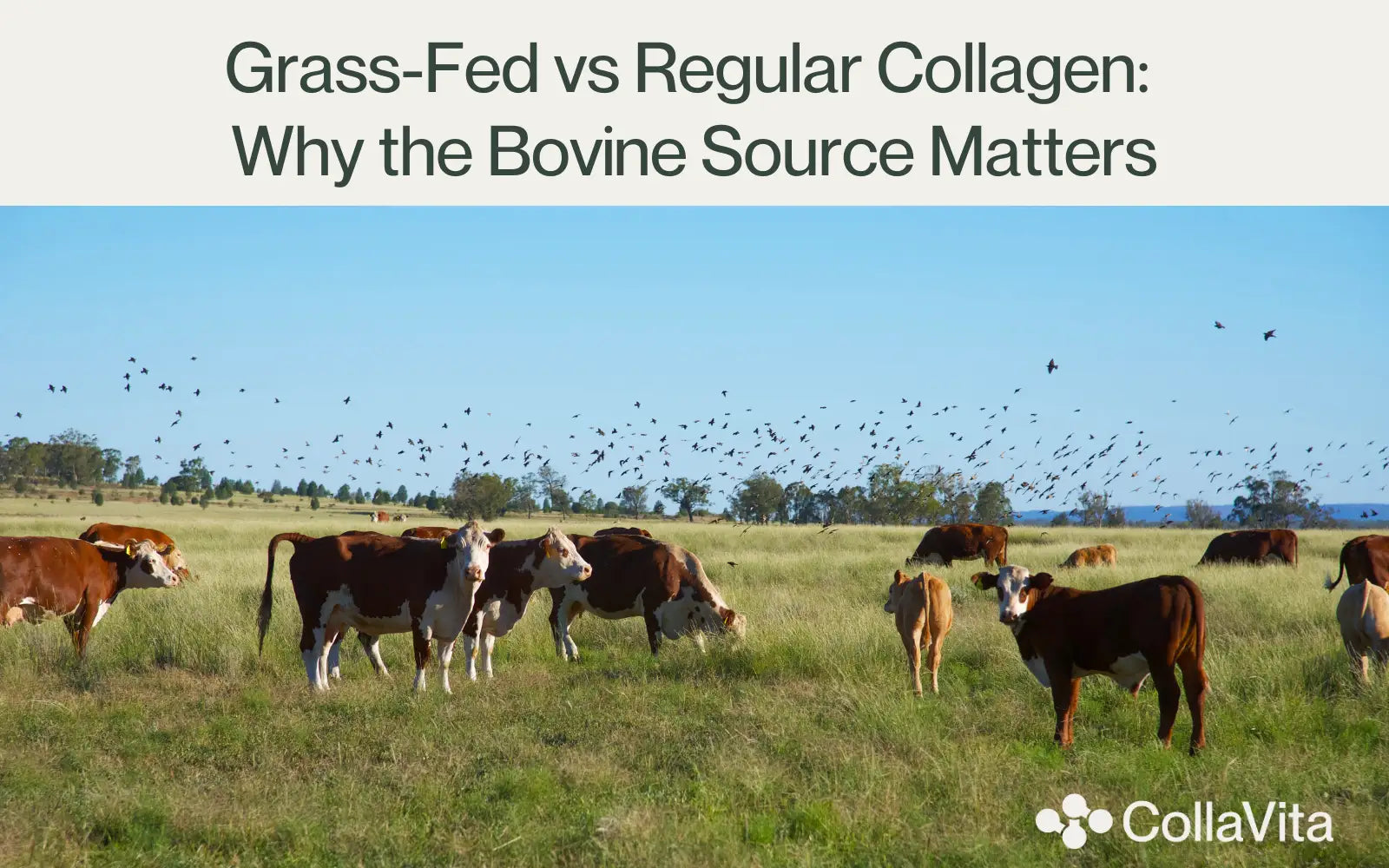Why Look for Collagen Alternatives?
While traditional collagen supplements are derived from animal sources like beef, fish, or chicken, there are many reasons to seek an alternative:
- Dietary Restrictions: You follow a vegan or vegetarian lifestyle.
- Ethical Concerns: You choose to avoid animal-derived products.
- Allergies: You are allergic to fish, shellfish, or bovine products.
- Sustainability: You prefer eco-conscious options with a lower carbon footprint.
- Natural Support: You want to support your body’s natural collagen production rather than relying on direct supplementation.
The Truth About Vegan Collagen
It’s essential to be transparent: there is no such thing as true plant-based collagen. Collagen is only found in animal tissues. So when you see the term "vegan collagen," it doesn’t refer to actual collagen but rather to products that provide the essential nutrients, such as vitamin C, silica, and amino acids, your body needs to produce collagen naturally.
This distinction matters. Brands that are honest about this educate consumers and build trust. Instead of offering collagen itself, vegan collagen boosters work by stimulating your body’s collagen synthesis, which can be just as effective over time, especially when paired with a healthy lifestyle and balanced diet.
What Are the Key Differences Between Vegan Collagen Boosters and Animal-Based Collagen?
The main difference lies in how these two options support your body:
- Animal-Based Collagen: Delivers hydrolyzed collagen peptides directly to the body. These are broken down into amino acids and either used as collagen or repurposed for other functions. It’s a direct supplementation approach.
- Vegan Collagen Boosters: Provide the building blocks (e.g., vitamin C, zinc, copper, proline, glycine, silica) that your body needs to create its own collagen. These are typically derived from plants such as bamboo, amla, gotu kola, and sea moss.
While animal-based collagen delivers collagen directly, vegan collagen boosters stimulate endogenous collagen production, a more natural and sustainable path for many people.
What Are the Best Natural Foods That Boost Collagen Production?
The best natural foods that boost collagen production are bamboo leaf extract, amla berry, gotu kola, sea moss, aloe vera, and citrus fruits. These plant-based sources don’t contain collagen directly but provide essential nutrients, such as vitamin C, silica, and antioxidants that stimulate your body’s natural collagen synthesis and support healthier skin, joints, and hair.
1. Bamboo Leaf Extract
Bamboo leaf extract is one of the richest plant sources of silica, a key mineral required for collagen synthesis. Silica enhances the production of hydroxylation enzymes, which are essential for maintaining collagen structure. In addition to its anti-aging effects, bamboo extract improves skin hydration, elasticity, and firmness, while also promoting shiny, healthy hair.
2. Amla Berry and Gotu Kola
- Amla Berry (Indian Gooseberry) is a potent source of Vitamin C, a vital cofactor for collagen production. It helps enhance skin firmness, reduce fine lines, and support skin regeneration.
- Gotu Kola, an Ayurvedic medicinal herb, offers antioxidant and anti-inflammatory benefits.. It’s known to soothe skin irritation, improve blood circulation, and support joint and connective tissue health.
3. Sea Moss
Sea moss is a powerhouse of plant-based collagen-boosting nutrients, including Vitamins A and C, calcium, magnesium, and potassium. These nutrients support skin elasticity, hair growth, immune strength, and digestive wellness, making it one of the top vegan collagen-supporting superfoods.
4. Aloe Vera
Renowned for its skin-healing properties, aloe vera contains high levels of Vitamin C, A, and antioxidants. These nutrients help stimulate collagen production, reduce acne and inflammation, and improve overall skin hydration. Aloe vera is also a go-to remedy for sunburn relief and skin recovery.
5. Citrus Fruits
Citrus fruits, such as oranges, lemons, limes, and grapefruits, are rich in Vitamin C, a key nutrient for collagen synthesis. These fruits are often included in vegan collagen supplements due to their high antioxidant content and ability to support glowing skin and a strong immune system.
Read more: Collagen with Vitamin C: A Comprehensive Guide

What are the Benefits of Plant-based Collagen Boosters?
Plant-based collagen boosters do not contain animal-derived materials such as gelatin or tissues. Hence, they can be used by vegans. Furthermore, they are easier to digest and do not normally cause intestinal problems.
Secondly, collagen boosters are derived from sustainable plants, including sea moss, aloe vera, bamboo extracts, and amla berries. Hence, plant-based collagen boosters have a significantly lower carbon footprint and fewer negative environmental effects compared to animal-based collagen types.
Lastly, plant-based collagen boosters aim to bolster collagen synthesis and production in the body by providing a sufficient amount of necessary vitamins and minerals. So, the body can produce as much collagen as needed and use it in the required tissues.
How to Choose the Right Vegan Collagen Boosting Product for You?
When selecting a vegan collagen supplement, consider the following:
- Brand Reputation: Research the company. Look at third-party reviews, transparency practices, and customer feedback.
- Clean Ingredient Profile: Opt for formulas that contain essential nutrients such as vitamin C, amino acids, zinc, and copper and avoid heavy metals or artificial additives.
- Third-Party Testing: Verify that the product has been independently tested for safety, quality, and efficacy.
- Marketing Claims: Be cautious of unrealistic promises. True vegan collagen boosters support not replace your body’s collagen production.
Scientifically Reviewed by Omer (Matt) Sermet


